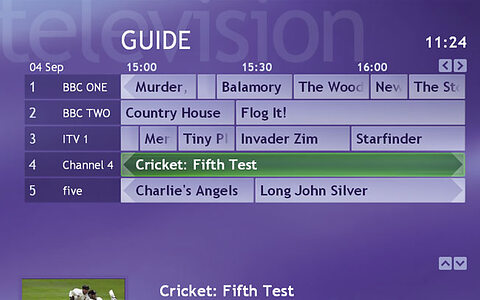
Apple MacBook Pro: M1 Pro & Max
Apple’s most powerful laptop computer ever has been explicitly designed with music in mind.
To find the exact phrase, put the words in quotes or join them together with a plus sign e.g. live+recording or "live recording".
To find, say, all live recording articles that mention Avid, enter: live+recording +avid - and use sidebar filters to narrow down searches further.

Apple’s most powerful laptop computer ever has been explicitly designed with music in mind.

It's been possible to make music on Apple laptops for many years now, but creating a working mobile system is harder than it looks. Fortunately, one SOS contributor has years of experience to pass on...



If the 16‑inch MacBook Pro was too much and the MacBook Air too little, is this latest 13‑inch MacBook Pro just right?

BONUS WEB EXTRA REVIEW! Could Apple’s latest 27-inch iMac be the perfect all-in-one at the right price for musicians and audio engineers?

There's no gain without pain. Martin Russ experiences the joys and agonies of a new computer — the Apple Power Mac 7300.

The small and not-so-small time delays between a signal entering and then emerging from a computer soundcard can turn hard disk recording into a frustrating experience. Martin Walker leads us through the twists and turns of latency.

Paul White gives some tips on how to get the best out of your computer sequencer without needing a degree in computer science...

Karl Steinberg now runs one of Europe's most successful software houses. But the company grew from a mere idea and a small business loan. Paul White talked to the man behind the mighty Cubase at his Hamberg R&D department.

Dennis Miller concludes his short series on computer-based synthesizers by looking at some hybrid software/hardware synthesis systems, and introducing the powerful software synth language CSound.

Designing sounds on a computer can give you virtually all the knobs and sliders you'd want, but there's the potential to go far beyond hardware synthesis too. Dennis Miller begins a two-part tour of what's available.

Martin Russ offers an antidote to the hype of Windows '95 and explains why the future of computing lies with the PCI buss...

With the release in the UK of XP Media Center Edition, Microsoft aim to make Windows PCs a modern equivalent of the radiogram — the heart of a complete music and video home. entertainment system.

Dave Shapton exposes Microsoft's plans for Windows XP copy protection, and explains why he thinks digital mixers are on the way to becoming all-purpose control surfaces.

The 64-bit Windows XP x64 edition is on the shelves, but musicians should stick with their trusty 32-bit OS for the moment. PC Notes explains why, as well as offering some constructive soundcard feature suggestions to manufacturers.

We look at how Windows' multi-user accounts can be used as a potential alternative to setting up different versions of Windows on multiple partitions.

We survey developments from the recent Windows Hardware Engineering Conference, which brought to light new information concerning the future of the forthcoming 'Longhorn' version of Windows.

Martin Walker finds out what's new in Windows Millennium edition and explores the latest version of Native Instruments' Pro-five VST Instrument, renamed the Pro52.

After a long wait, the new Windows Vista OS is actually on the horizon — so should we all be rushing to upgrade?